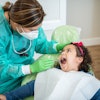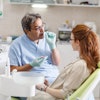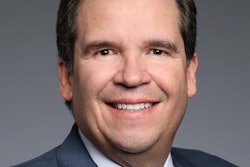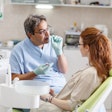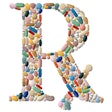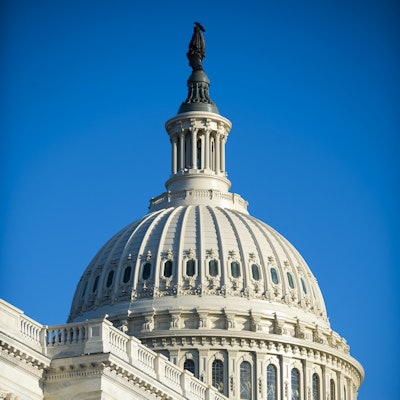
The U.S. National Institutes of Health (NIH) and the National Institute of Dental and Craniofacial Research (NIDCR) on December 21 released the long-awaited sequel to the surgeon general's 2000 report on oral health. The report reveals many people in the U.S. have chronic dental problems and lack access to care despite advances in oral health.
The report, titled "Oral Health in America: Advances and Challenges," highlights how the oral health disparities identified more than 20 years ago remain mostly unaddressed. It also pinpoints how certain substances and mental health conditions affect oral health, provides an update on opioid prescriptions, and summarizes the critical role that oral health plays in overall health.
"It is the most comprehensive assessment of oral health currently available in the United States and it shows, unequivocally, that oral health plays a central role in overall health," stated NIH Acting Director Dr. Lawrence Tabak, PhD, in an NIH release. "Yet millions of Americans still do not have access to routine and preventative oral care."
Access to care still a problem
The report highlights the disparities many people face when accessing oral healthcare. Millions of Americans are negatively affected by a lack of insurance, as well as the dental health professional shortage. In addition, economic status and social and behavioral determinants affect population oral health.
"The report shows that despite the importance of oral health to overall health and well-being, oral healthcare is not equally available to all Americans," said NIDCR Director Dr. Rena D'Souza, PhD, in a December 21 NIH webcast about the report's release.
In the webcast, Dr. Bruce Dye pointed to a need for universal health coverage that includes oral healthcare. He noted progress made in children's dental health insurance coverage over the past 20 years. But he also said that about half of the older adult population remains without dental coverage -- an issue that will only become more problematic with an aging U.S. population.
"Over the course of the next couple of years, an action plan should emerge that includes a framework to monitor the development of universal health coverage," said Dye, a dental epidemiology officer at the NIDCR and one of the report team members. "We have now seen how promoting access to care and expanding universal dental coverage can help lower the prevalence of untreated oral diseases at a population level."
To improve oral health in the U.S., the report authors made the following recommendations:
- Change policies to reduce or eliminate social, economic, and other systemic inequities that affect oral health behaviors and access to care.
- Encourage healthcare professionals to work together to provide integrated oral, medical, and behavioral healthcare in schools, community health centers, nursing homes, and medical care settings, as well as dental clinics.
- Improve access to care by developing a more diverse oral healthcare workforce by addressing the rising cost of dental education, expanding insurance coverage, and improving the overall affordability of care.
"The future for oral health in America is promising, and it depends on our ability to expand and implement the view that oral health is an essential part of overall health and health care," the authors concluded.
Focus on mental health, integrated care
One factor considered in the report is the relationship between mental illness and oral health status. More people than ever in the U.S. are experiencing mental illness, which may be linked to oral health neglect or medications that affect oral tissues.
In addition, the report highlights the need for medical and dental integration that goes beyond primary care providers delivering fluoride varnish and dental providers offering glucose screenings and vaccinations. It also calls for integrated medical records at the point of care, Dye said.
Such integration could help clinicians better understand patients and their needs. It could also result in fewer clinical errors and more individualized treatments.
"The future of patient-centered care depends on the integrated electronic health record, and the integrated electronic health record also promotes advanced research opportunities, ranging from clinical informatics to public health," Dye said.
Other oral health challenges include the opioid epidemic and the rise of vaping products for tobacco and marijuana, especially among teens and young adults. However, dentists have reduced the number of prescriptions for opioids, and the prevalence of traditional cigarette smoking continues to decline.
Long time coming
"Oral Health in America: Advances and Challenges" includes data compiled and reviewed by the NIDCR and a team of more than 400 experts. It offers a comprehensive snapshot of oral health in the U.S., including an examination of oral health across the lifespan and how oral health affects communities and the economy.
The report was originally commissioned in 2018 as a surgeon's general report on oral health -- the first update since the original landmark report was published in 2000. However, in June, it was announced that "Oral Health in America: Advances and Challenges" would not be released with the imprimatur of the Office of the Surgeon General. At the time, experts worried it would not get the attention it deserved if it wasn't unveiled by the U.S. surgeon general.
The new report was compiled mostly from public research and evidence-based practices and aims to provide a road map on how to improve oral health in the U.S. In addition to reemphasizing that oral and medical conditions often share common risks, the report sheds new light on how people in the U.S. experience oral health differently, based on age, economic status, and multiple other social and commercial determinants.
"The report is intended as a road map for the way forward," D'Souza said. "This call to action is only made more urgent by the global COVID-19 pandemic, which demonstrated the mouth's role as the gateway to the rest of the body, and that the people in communities most affected by the pandemic are the ones who are, in fact, most in need of oral healthcare."

